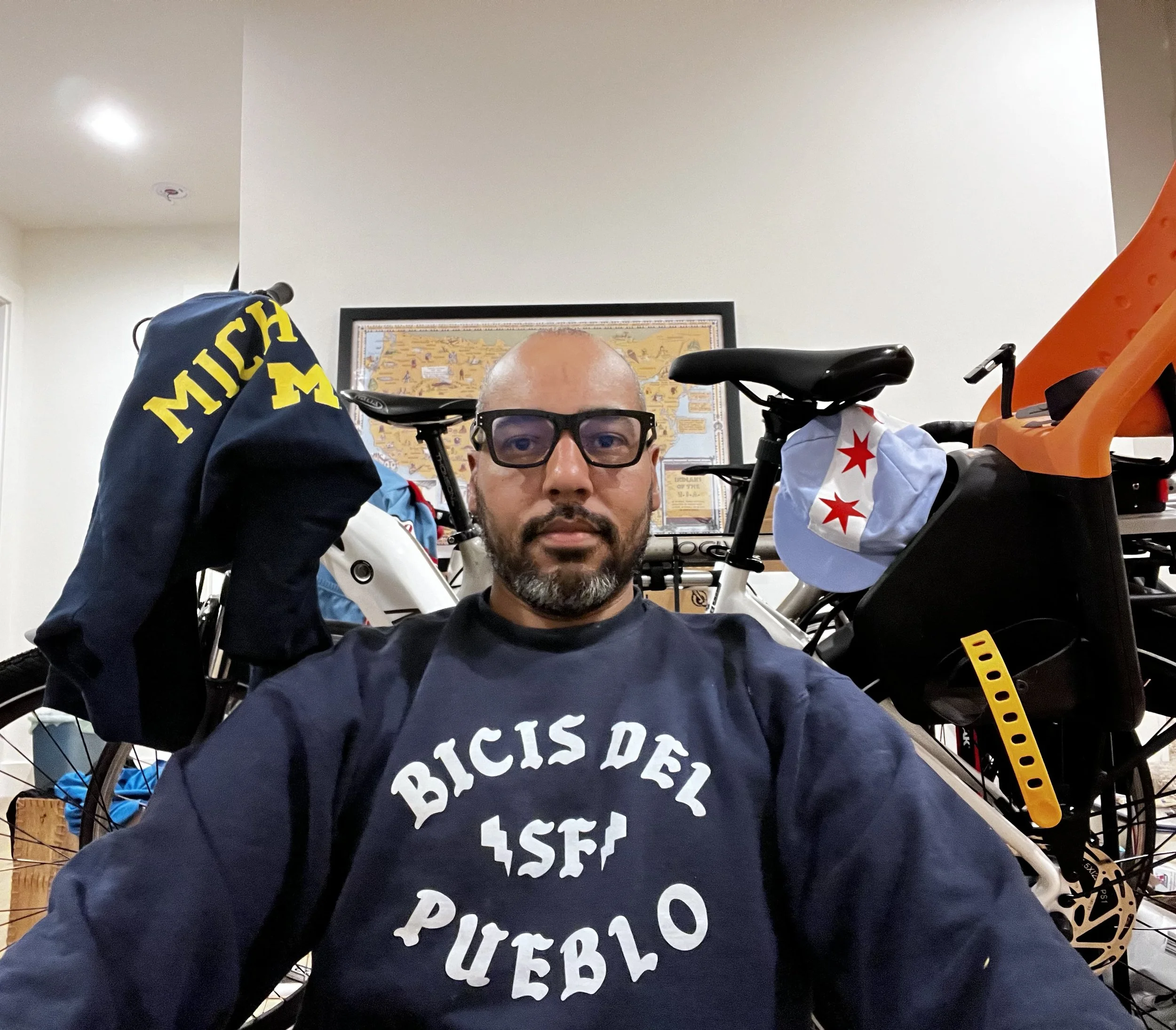Working Locally
An important enabler of living connected to place is being able to work near where you live and, through your work, contribute positively to the place where you live, as Nic Jay Aulston’s story illustrates in this profile. Nic also helps us understand there are many layers to what constitutes local work, including ownership, employees, customers or clients, and relationships with other local organizations and businesses. This post is part of Profiles in Living Connected to Place, a series by Matt Biggar, Ph.D., that portrays individuals living connected to place with intention and the support of systems that make it possible. Prior posts can be found here.
Nic Jay Aulston grew up on the South Side of Chicago. He remembers being the one kid who biked to school. He tried to bike to Milwaukee once without a way to fix a flat tire or a cell phone (yes, not long ago, we existed without them!). He survived the ride and eventually made his way to the University of Michigan, where he discovered his passion for urban planning.
After college, Nic spent two years as a Peace Corps volunteer in Honduras. There, he learned the importance of being rooted in the community you are trying to serve. He recalls stopping by houses to chat most days on his way to and from work. He appreciated how local teachers, mechanics, restaurant owners, and others took on youth as apprentices so that they could learn how to do these jobs in their community.
Nic moved to San Francisco a couple of years after earning a Master’s in Urban Planning from the University of California at Los Angeles. He could have worked at a national or international consulting firm. Instead, he chose to work at the Urban Strategies Council, a regional research and advocacy organization dedicated to equity and justice.
In 2013, Nic co-founded Bicis del Pueblo (Bicis), a project of the grassroots nonprofit People Organizing to Demand Environmental and Economic Justice (PODER) that serves low-income Latino immigrants and other communities of color in southeast San Francisco. Nic describes Bicis del Pueblo as “a community-based bike project that works towards providing low-income youth and families with the knowledge, tools, and resources to incorporate the bicycle into their everyday lives.” In addition to workshops and community events, Bicis engages youth in repairing bikes that become their own. Nic’s life experience with bikes and serving communities found a perfect home in Bicis that he helped create.
In a city where bike shops are commonplace, there were none before Bicis in the entire southeast quadrant of San Francisco, where many of the city’s low-income residents and people of color reside. The Bicis team strives to be a consistent presence for youth and their families and mentor youth on how to start something themselves, whether bike-related or not. Bicis has also provided workshops on local politics, healthy eating, art, and other topics that can enrich participants' lives. As Nic highlights, Bicis has come a long way from starting with “one bag of tools and a bike stand.”
The general ethos of Bicis Del Pueblo is “transformational, not transactional.” Nic explains the approach.
It’s easy to go buy a bike or a service or even a sandwich, but Bicis is trying to be transformational in all its actions. If lunch is bought, make sure it’s done through a local business. If you are fixing a bike, teach the person about it. Don't just walk through life trading money with people. Have conversations, share stories and experiences, and build something with others.
Bicis del Pueblo has continued beyond Nic’s tenure there and is a well-regarded, highly valued community-based bike program. The Bicis team today, like Nic, thrives being a part of and contributing to local community and healthy lifestyles through their work.
Throughout his community-based work, Nic has strived to address inequities that BIPOC families like his own have faced. He has seen firsthand how hard it is for people in neighborhoods like where he grew up to access resources to start businesses. His parents wanted to create a food business but couldn’t secure a loan. Nic aims to increase the voice of marginalized people in determining the conditions that surround their lives so that “what is built is for them and not on them.” He adds that this includes businesses with “local ownership, local patronage, and local employees.”
Too often, work today means being employed in a corporation or other organization that operates nationally or globally. The connection to place is lost. Local wealth is extracted and sent to corporate headquarters and shareholders. Communities or nature rarely benefit. As Nic suggests, we need a paradigm shift and a work system that encourages, supports, and helps sustain local enterprises and livelihoods.

